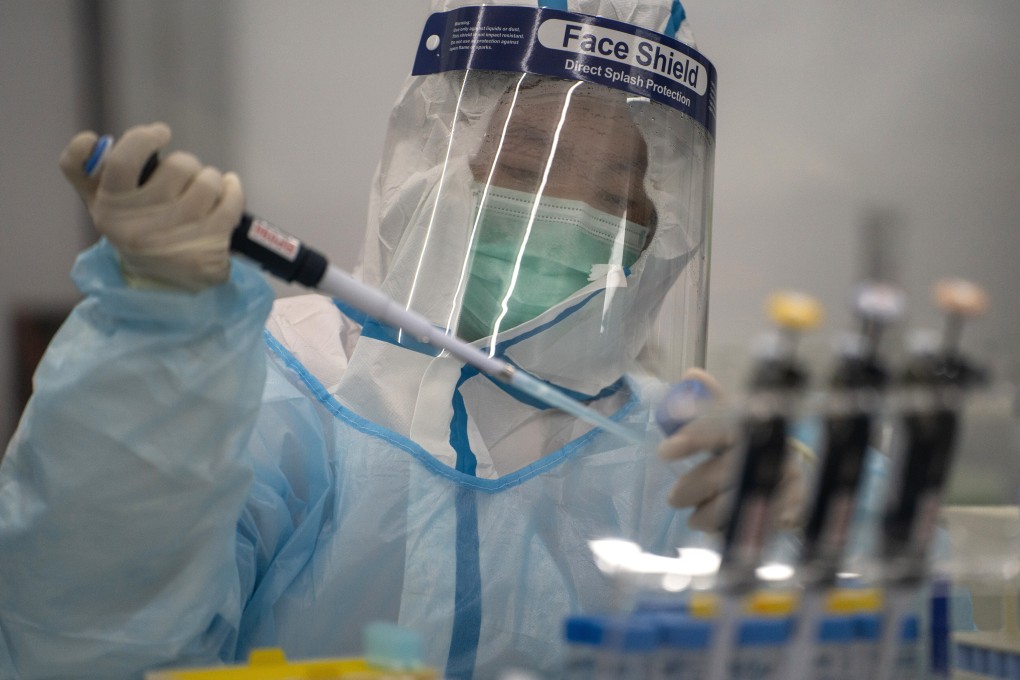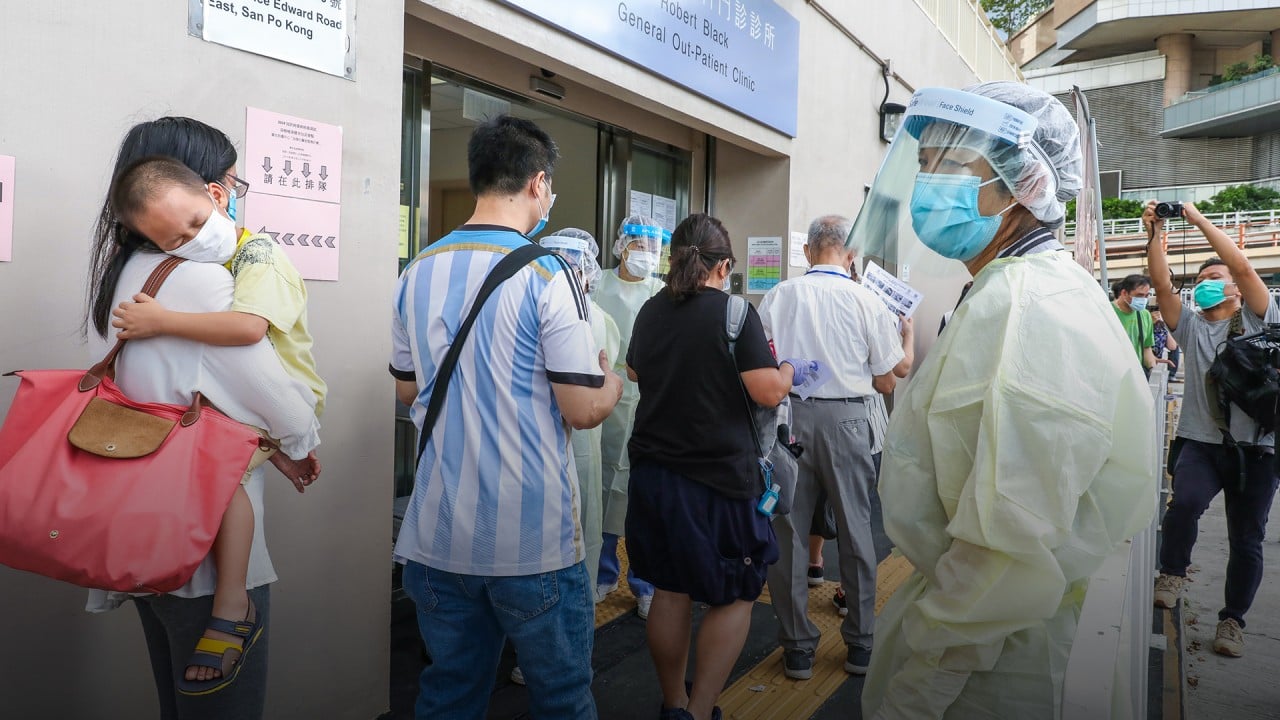Letters | Hong Kong Covid-19 mass testing: why fears of DNA collection are unfounded
- Contrary to the conspiracy theories being peddled, Covid-19 testing involves short sequences of RNA, not DNA. Gene-sequencing technology has not yet progressed to the point where a person’s whole genome can be captured quickly and cheaply

Currently, a Covid-19 test can be performed using antibody- or nucleic acid-based approaches. The nucleic acid-based approach applies a laboratory technique called real-time polymerase chain reaction (RT-PCR) to test for the presence of viral RNA (ribonucleic acid) – a genetic piece of Covid-19 – in a deep-throat saliva sample or a nasopharyngeal swab.
The RT-PCR test specifically amplifies a short region on the RNA sequence of the Covid-19 virus. If a viral RNA sequence is detected in the sample, the amplification is successful and presented as positive, or “+”. No DNA sequences are revealed by this test.

03:07
Hong Kong’s mass Covid-19 testing to begin on September 1, to last at least 7 days
A human genome is a long stretch of combinations of four DNA letters – A, T, C and G – running to 6.4 billion letters in all. Thus, sequencing a whole genome (WGS) – as opposed to a short strand of RNA – is a much more complex and expensive undertaking.